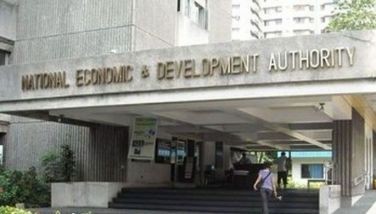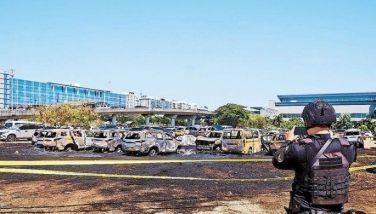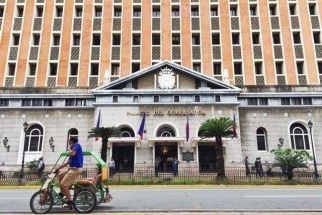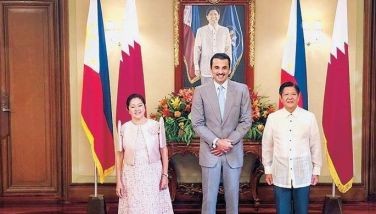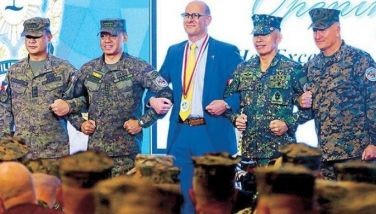China at 60: A giant no longer asleep

MANILA, Philippines - The Chinese appear to be a newspaper reading public, at least those residing in the southern coastal cities fronting the Taiwan Straits, judging by the number of newspapers in the cities of Fuzhou, Quangzhou, Jinjiang and former township Shishi, all in the province of Fujian, former Amoy, from where hail the ancestors of most Chinese Filipinos.
The Fujian Daily, Quanzhou Daily News, Jinjiang Economy News and Shishi Daily all deal with issues economic and cultural particularly cross-straits relations, with a single minded purpose verging on the obsessive. A few have cooperation agreements with Binondo-based papers, or are former party papers.
Zeng Shi Hua, editor in chief of Jinjiang Economy News, said his paper features a revolving column on successful Chinese entrepreneurs who have done business with Filipinos or are themselves Chinese Filipinos.
His broadsheet paper has a reader friendly layout perhaps more suitable for a tabloid.
Chen Tanwen of the Fujian Media Group said they have a program with a reality TV format that brings together Chinese and Taiwanese on a blind date in the mainland, the better to foster cross-straits relations and understanding.
“They have a common language, their histories and concerns are the same,” one interpreter said at a reception for the Philippine media group at the Lakeside Hotel in Fuzhou City, capital of Fujian province, two and a half hours’ plane ride from Beijing. Taiwanese even enjoy zero tariffs when exporting their products to China, preferential treatment reserved only for what they consider a prodigal province.
But there is no rush to woo Taiwan back into the mainland fold, as both sides are for the moment satisfied with the one-China, two-systems policy. Case in point is Macau, hub of world-class casinos, even if gambling is illegal in China.
At the Jinjiang Overseas Chinese History Exhibition there is a whole panel devoted to successful overseas Chinese businessmen, quite a number of them familiar to Filipinos: Lucio Tan, Henry Sy, the Yuchengco patriarch.
These Chinese Filipinos have channeled philanthropist efforts to their ancestral home as a way of giving back to the community. The exhibition also has a panel on Jose Rizal, the national hero with Chinese roots, who has a monument erected in his memory in Jinjiang.
During a visit there by the media delegation on the day before flying home, the square was mostly empty, and a red guard named Simon asked us in Tagalog if we brought any girls along. Meanwhile at the Maritime Museum on Quangzhou, chronicle of the silk trade route, Marco Polo is mentioned in the same breath as one Iban Batuta. Could Batuta also have been another Philippine ancestor?
Our guide said that Mao doctrine is hardly taught in Chinese school today, and there are few remaining statues of the chairman left across China’s sprawling landscape, though people still line up to view his remains in Tiananmen.
“Getting rich is a glorious thing,” our guide Yaoyao said, which made us wonder what Jose Maria Sison, chair of the Communist Party of the Philippines in exile in the Netherlands, was fighting for.
- Latest
- Trending














